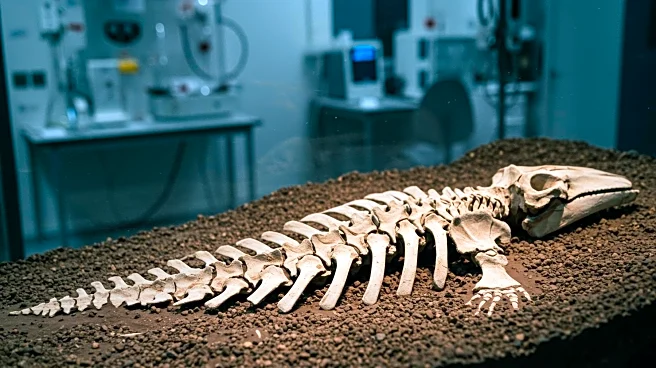What is the story about?
What's Happening?
Scientists have identified a new species of ancient whale, Janjucetus dullardi, from juvenile remains found in southeastern Australia. This species, which lived around 26 million years ago, is one of the earliest known relatives of modern baleen whales. Unlike its filter-feeding descendants, J. dullardi had a compact body and sharp teeth, indicating a predatory lifestyle. The discovery was made from fossils found by Ross Dullard, a school principal, and donated to Museums Victoria. Researchers used advanced techniques to analyze the fossils, revealing insights into the evolutionary history of whales.
Why It's Important?
The discovery of Janjucetus dullardi provides significant insights into the evolutionary trajectory of whales, particularly the transition from predatory to filter-feeding species. Understanding the adaptations and ecological roles of ancient whales helps scientists reconstruct the marine environments of the past and the evolutionary pressures that shaped modern cetaceans. This finding also highlights the importance of public contributions to scientific research, as amateur discoveries can lead to breakthroughs in paleontology.















